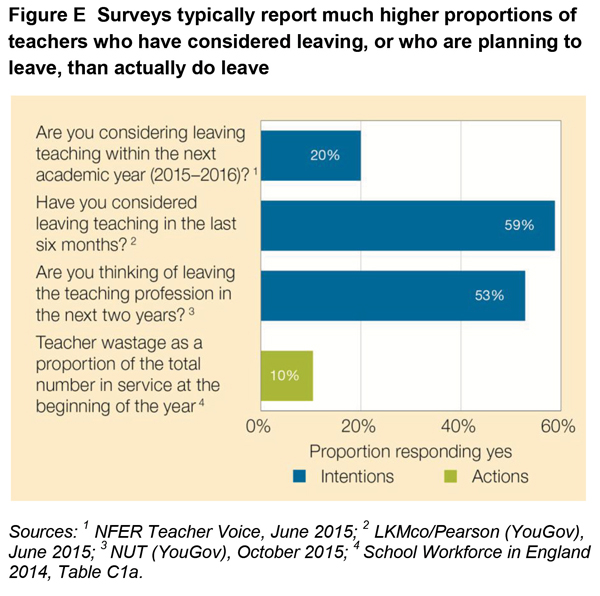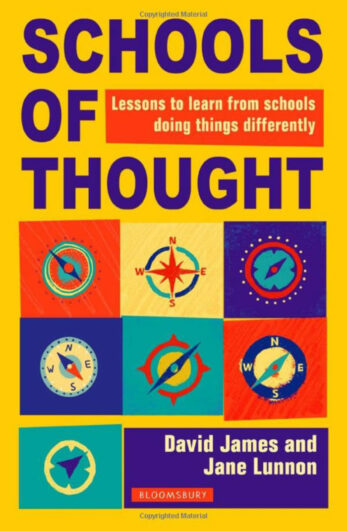My favourite publications this year have been those that help to build up bodies of research by looking at complex questions from different angles.
A great example is Rob Webster and Peter Blatchford’s article in April’s British Educational Research Journal. Studies such as the Deployment and Impact of Support Staff (DISS) project, showing that pupils make less progress when supported by teaching assistants (TAs), are now relatively well known (Blatchford, et al. 2012). However, asking “why?” and unpicking pupils’ educational experiences requires a different approach. Webster and Blatchford’s new article helps to do this by exploring pupils’ experiences in school. Through detailed case studies of 48 pupils with moderate learning difficulties or behaviour, emotional and social difficulties, they highlight four key themes that may explain DISS’ initially surprising results:
1. Degree of separation: pupils working with TAs are often isolated from their peers and teachers, spending a quarter of their time away from the classroom.
2. Degree of responsibility: the TA rather than teacher is often seen as responsible for delivering the curriculum to statemented pupils.
3. Appropriateness and quality of pedagogy: work is not always well matched to pupils’ abilities and TAs are left to differentiate.
4. Knowledge about pupils with statements: teachers and TAs often lacked understanding of how to support SEND pupils.
Statemented pupils’ needs vary widely and are often lost in averages. What I love about Webster and Blatchford’s article is that it helps bring to life what it’s like to be one of these pupils in an English school.
This year has also provided an enriched evidence base when it comes to the “London effect”. In 2014, four reports explored the astonishing success of schools in the capital. All used different methods and provided mutually enriching insights. This year, rather than turn to something jazzy and new, Jo Blanden et al took up the gauntlet and published “Understanding the improved performance of disadvantaged pupils in London”. They concluded that improvements are “mainly attributable to gradual improvements in school quality rather than differences or changes in the effects of pupil and family characteristics”. It’s a conclusion that contrasts with Burgess’ 2014 report, which found that pupil characteristics explained most of London’s advantage. Nonetheless, in keeping with The Institute for Fiscal Studies’ study (Greaves, 2014), and to some extent our own report with the CfBT and Centre for London (Baars et al, 2014), Blanden points out that these improvements were down to more than just London Challenge. Taken together, these reports highlight the role of ethnic composition, while recognising that underperformance is not immutable.
NFER Report: Should I stay or should I go?

While ethnicity doesn’t explain everything, I’ve long argued that neither does the oft-invoked “poverty of aspirations” (Menzies, 2013). A growing body of research has highlighted this too and demonstrated that “raising aspirations” is an ineffective way of supporting young people’s transitions to adulthood (Sinclair et al, 2010; Kintrea et al, 2011; St Clair et al, 2013; and Baker et al, 2014). It also suggests low attainment and poor labour market transitions are more likely due to low expectations (what young people think they are likely to do in the future) than low aspirations (their hopes for the future). This year Nabil Khattab analysed different combinations of aspirations and expectations, rather than considering the two in isolation. Crucially, this research suggests that the influence of “low expectations” on attainment at 16 is at least as significant (and far more widespread) than low aspirations – a great example of how a new study can inject new insights into an established debate.
Pearson & LKMCo Report: Why teach?

In the past few months teacher supply has become the latest hot topic and an important new body of research is quickly emerging around it. First in line was “Why Teach”, which we published in October with Pearson. It sets out why teachers go into teaching and what motivates them to stay, as well as exploring how they decide where to work. Our research found that teachers tend to enter the profession to make a difference, either to society or individual pupils. However, in the long run, instrumental motivators such as pay and career progression become increasingly important, while, at secondary level, subject interest can be key, particularly in the arts and humanities. Our report combined a large-scale, detailed survey as well as in-depth case studies in 12 schools in four areas. What we were not able to do, though, was explore long-term trends but, thankfully, the National Foundation for Educational Research has now published “Should I stay or Should I go”, which does exactly that. It uses national data sets to show that the number of teachers leaving the system increased 24 per cent between 2010 and 2014. An increase in recruitment has mitigated the short-term impact, but it is disturbing, given that increased recruitment was designed to cater for a growing pupil population rather than an exodus of teachers. Last week, the National Association of Head Teachers’ own report did little to allay concerns: it showed that the proportion of school leaders blaming recruitment problems on the number of teachers leaving the profession has more than doubled in the past year. Thankfully, with a growing evidence base from a range of sources, it will become increasingly difficult for Nick Gibb to keep chanting: “Crisis, what crisis?”
It has been a pleasure to see these bodies of research grow and deepen, giving us an increasingly rich understanding of the big questions that will shape the future of education. Too often people say “research shows that…”. In fact, the picture is almost always more complex — different papers present different findings using different methods. But that’s a good thing; no piece should stand alone.







Your thoughts